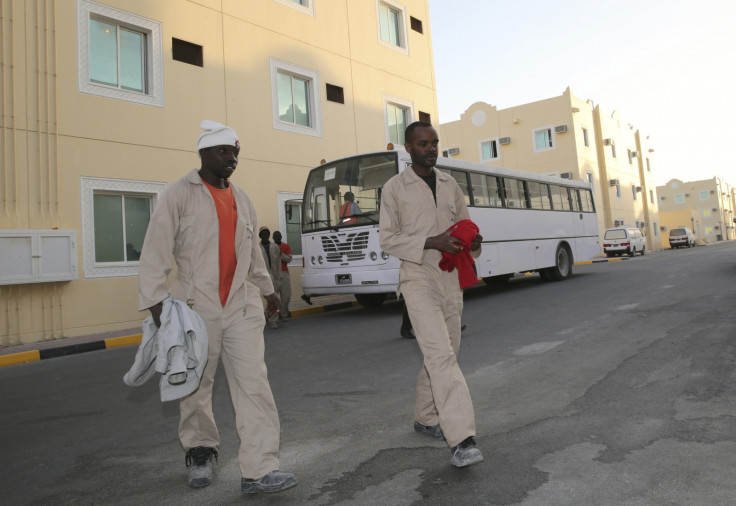Qatar Deportation Threat to Migrant Workers-on-Strike is Sad Reminder of Gulf Nation's Abuses

The latest episode in Qatar's contentious treatment of its migrant workers sadly sums up all the reasons why human rights organisations and the UN are pressing the emirate nation to make key changes to tackle widespread abuse ahead of the 2022 Fifa World Cup.
According to reports on Doha News, 100 construction workers from south/south-east Asia who went on strike over their low wages were arrested and now face deportation from the Gulf nation. The workers, hired by Qatar Freelance Trading and Contracting and Qatar Middle East Co., were working on the renovation of Sheraton Doha hotel.
Strikes are a rare occurrence in Qatar, which usually does not tolerate dissent among its large and exploited foreign workforce. Nepali employees, who account for the majority of migrants flocking into one of the world's wealthiest nations, complained that, once arrived in Qatar, they were forced to accept lower wages compared to the ones agreed in their home country. They also had their passports confiscated and were made to sign a blank contract. The employer rebutted all the accusations and said the workers refused to work because "they wanted a higher salary".
But the contract substitution practice, along with the passport seizure, is a common wont under the infamous kafala system regulating the work structure in Qatar.
Under the kafala, local citizens and companies have the power to issue official work visas and residency status to migrant workers, who usually go through their recruitment agencies in their countries of origin in order to obtain a sponsor. They end up paying high fees ranging from $700 to $3,500 (£440 to £2,200) before even getting to the Gulf nation.
Once there, employees engage in abusive actions such as confiscating the migrants' passports and restricting their freedom of movement. That is a sad reminder of the twisted logic behind the kafala system: companies see their employers as owned property.
This mistreatment amounts to a blatant breach of the right to freedom of movement, according to Amnesty International.
The Qatari government stated in May 2014 that the current exit permit system would be scrapped and substituted with an automated system granting an exit permit to an employee after a 72-hour grace period for departure. They also promised to increase the penalty for passport confiscation from QAR 10,000 (£1,731) up to QAR 50,000 (£8,652).
Abusive behaviour
However, none of these measures have been implemented, according to Amnesty International. Also, with the promised change, employers will still have the opportunity to prevent the worker from leaving in the 72-hour window.
"It remains unclear on what grounds an employer could object, and how the worker could challenge this objection," Amnesty says in a report, earlier in November. "Any system that gives employers the right to object to someone leaving Qatar is inherently open to abuse."
No changes have been implemented on the kafala system either. The government had announced a plan to reform it by replacing the "No Objection Certificate", with an "employment contract system".
It is not the first time that foreign workers are arrested en masse for going on strike.
In 2010, 90 foreign employees working for al-Badar Construction Co. were arrested, jailed for several days and deported. Those who had worked for less than two years had to pay for their return tickets home.
They were protesting against al-Badar's refusal to increase the workers' salaries by 10% as required by their contract. The company cut the workers' pay by 35%, instead.
"People in the Gulf states say (strikes) are unacceptable. But it's inevitable ... What are their other avenues for grievances? Often, they don't have one," Human Rights Watch researcher Nick McGeehan told Doha news.
© Copyright IBTimes 2025. All rights reserved.






















